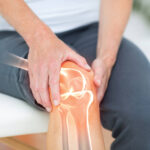As we navigate the golden years, staying active remains an integral component of a healthy lifestyle. For men over 50, fitness not only aids in maintaining physical prowess but also in enhancing mental well-being, warding off chronic diseases, and ensuring a good quality of life. However, the approach to fitness must be tailored to address the unique challenges and requirements of this age group.
1. Start with Medical Clearance:
Before embarking on any fitness journey, it’s essential to consult with a healthcare professional. They can provide guidance on any existing health conditions and recommend suitable exercise regimens. Safety should always come first.
2. Focus on Flexibility and Mobility:
Joint stiffness and reduced flexibility can be common issues for older adults. Incorporate regular stretching and mobility exercises, such as yoga or tai chi, to maintain a good range of motion, reduce injury risk, and enhance overall function.
3. Strength Training is Crucial:
As men age, muscle mass can naturally decrease, leading to sarcopenia (age-related progressive loss of muscle mass and strength). Regular strength training, using weights or resistance bands, helps maintain muscle mass, supports joint health, and boosts metabolism.
4. Prioritize Low-Impact Cardio:
High-impact exercises can place undue stress on joints that may already be showing signs of wear and tear. Low-impact cardio activities, such as walking, swimming, or cycling, offer cardiovascular benefits without the associated risk of injury. These exercises help in maintaining heart health, improving lung capacity, and supporting weight management without straining the joints.
5. Stay Hydrated:
As we age, our body’s ability to conserve water decreases, and our thirst sense can become less acute. This makes older adults more prone to dehydration. Drinking ample water supports muscle function, aids digestion, and keeps the skin healthy. Ensure regular water intake, especially before, during, and after workouts.
6. Incorporate Balance Training:
One of the significant concerns for older adults is the risk of falls. Incorporating balance exercises like single-leg stands, heel-to-toe walks, or exercises on a stability ball can enhance core strength, improve stability, and reduce the risk of falls.
7. Watch Your Diet:
With metabolism naturally slowing down, it’s crucial to monitor dietary intake. Emphasize protein to support muscle health, calcium and vitamin D for bone health, and incorporate a variety of fruits, vegetables, and whole grains for overall wellness.
8. Rest and Recovery Matter More:
The body’s ability to recover after a workout might take longer as one ages. Ensure adequate rest days between strenuous workouts and consider activities like deep-tissue massages or foam rolling to aid recovery.
9. Join a Group or Class:
Being part of a community can be motivating. Group fitness classes tailored for seniors can provide structured workouts and a social avenue. It also offers an opportunity to learn from instructors who specialize in training older adults.
10. Set Realistic Goals:
Whether it’s walking a certain distance, lifting a specific weight, or achieving a particular fitness level, set attainable goals. Celebrate small victories; remember that consistency is more important than intensity.
11. Listen to Your Body:
Pain is the body’s way of signaling that something is amiss. While some muscle soreness is expected, sharp or persistent pain is not. If something feels off, take a break or consult with a healthcare professional.
12. Stay Consistent:
Perhaps the most crucial tip of all: Stay consistent. While starting a fitness routine is commendable, maintaining it is where the real benefits lie. Regular activity, even if moderate, can have profound health benefits.
Conclusion:
Age is just a number, but as that number increases, so do the unique challenges and rewards of staying fit. For men over 50, embracing a tailored fitness regimen can lead to enhanced physical and mental health, increased energy, and an improved quality of life. Remember, it’s never too late to start, and a journey of a thousand miles begins with a single step.








